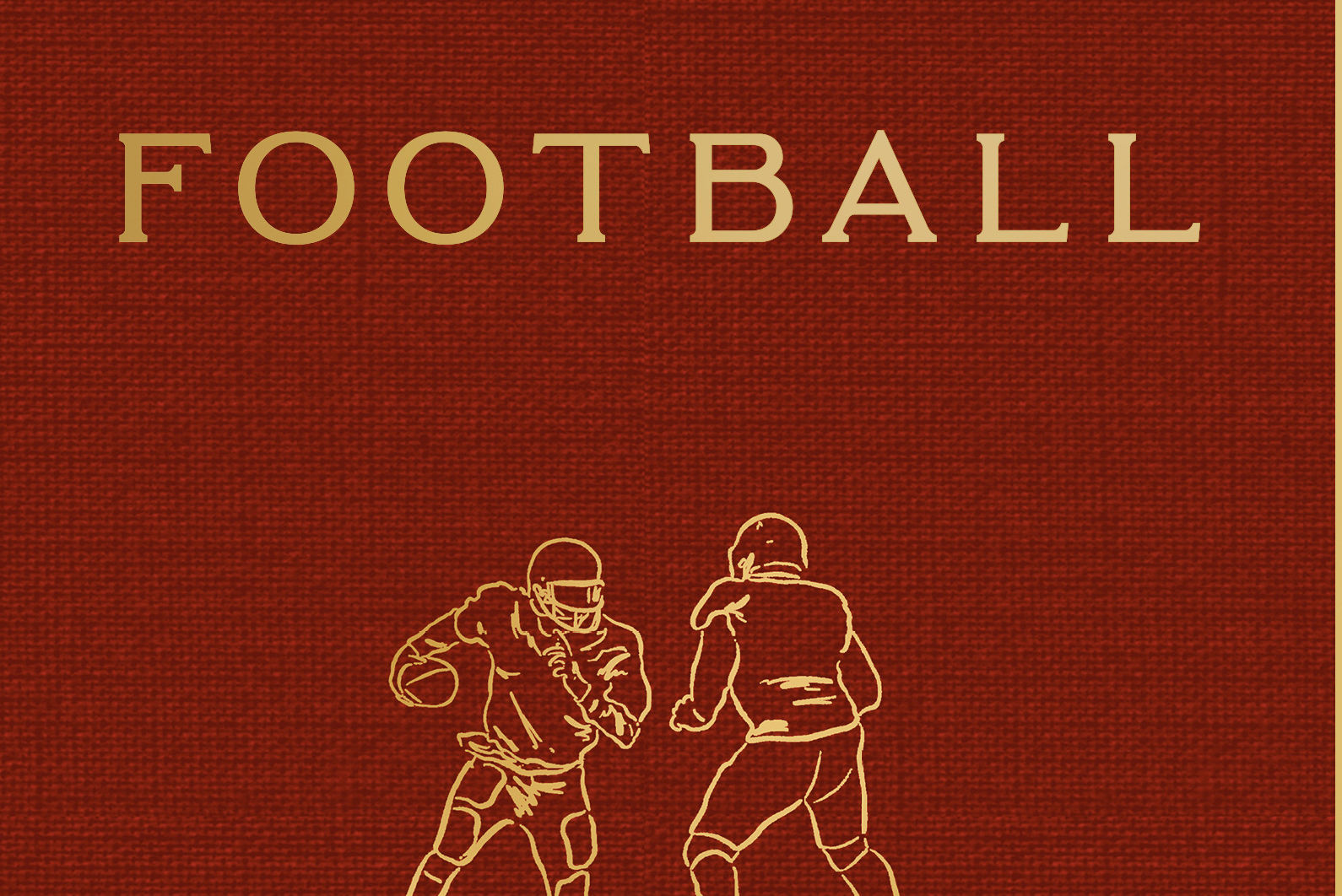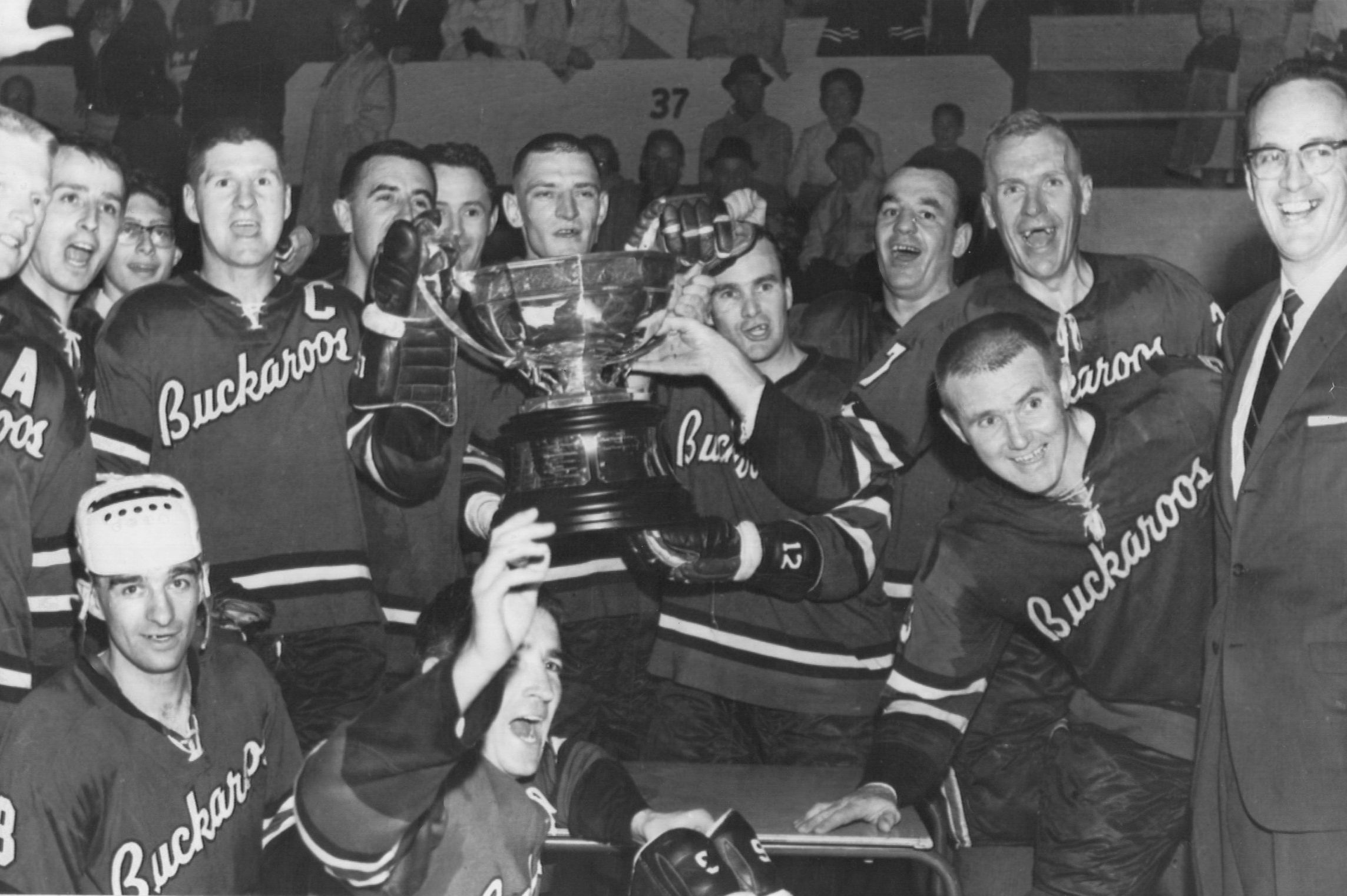Women’s Tackle Football Is a Hard-Hitting and Touchdown-Filled Thing to Behold
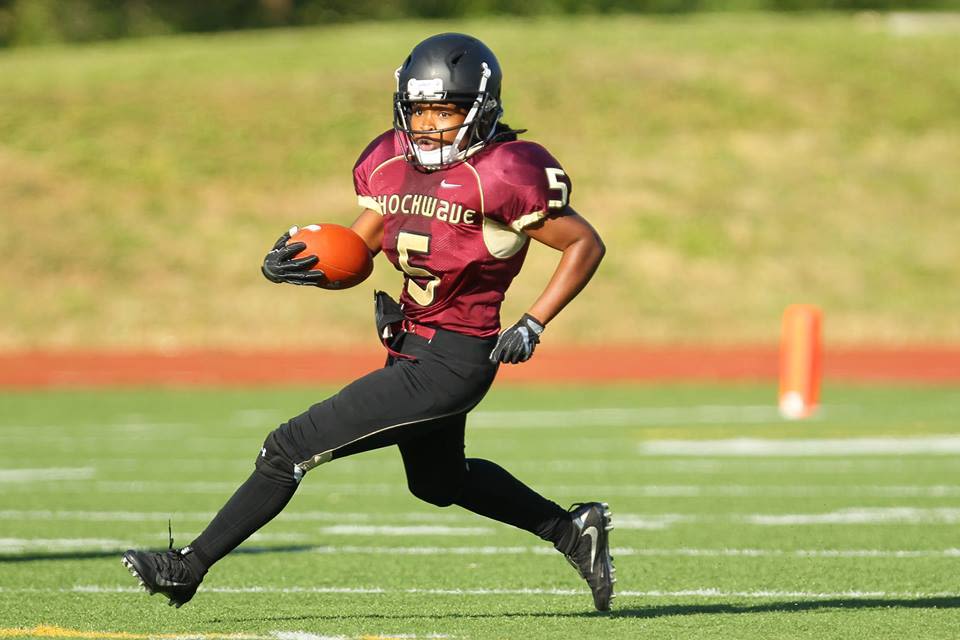
Shockwave running back Gabby Johnson making moves around defenders during a punt return
Image: Courtesy Portland Shockwave
The Portland Fighting Shockwave is more than ready to take the field against division rival, Tacoma, on April 6.
Since 2002, the Fighting Shockwave has been a part of the decades-old Women’s Football Alliance, America’s largest women’s semi-professional football league. After winning the WFA Pacific Region Championship in 2016 and 2017, the team looks to return to the top, with a roster of 28 women, comprising dental assistants, teachers, and truck drivers that span three decades in age.
Practices started in January, and with rookies outweighing the number of returning veterans, there was a lot to learn.
“We have a really great group of girls this year for sure,” says former player and team owner, Rebecca Brisson. “The vets love to take the rookies under their wing [and] all the rookies are super hungry to learn.”
At a practice on a surprisingly sunny, 60-degree day in March, the team has the benefit of spending the first hour of practice with USA Football Master Trainer and former teammate, Leah Hinkle. Hinkle also happens to have played linebacker on Team USA for the first two Women’s World Championships, bringing back gold medals in each.
After playing 14 seasons of tackle football, 8 of them with the Shockwave, Hinkle runs drills on proper tackling and how to avoid injuries in a game rife with them.
“It’s a really long season for women," she says. "You can only practice three times a week, so you have to start earlier than most sports teams would. You’re practicing for three months before you play, then you have a 10-week season. There’s [another] two weeks in between the playoffs, so the championship isn’t until the first weekend in August, or the last weekend in July. You’re giving over half your year to it.”
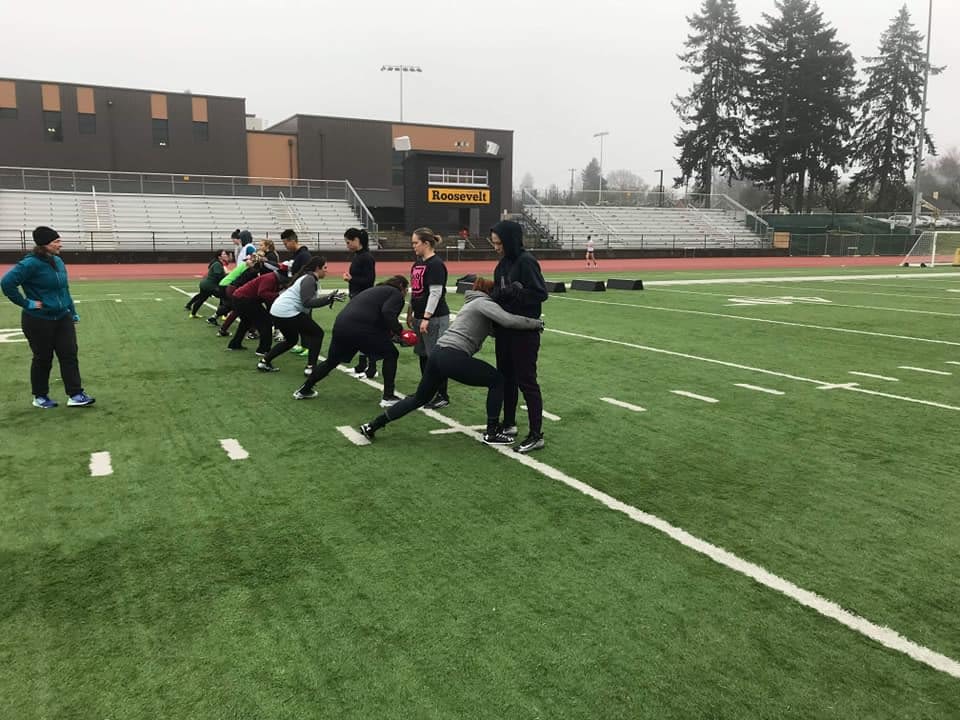
Former player and trainer Leah Hinkle demonstrating safe tackling techniques
Image: Courtesy Portland Shockwave
The commitment to the team means more than just giving up time. Hinkle recounts one game in Boise, where she sustained a tibial fracture. Her on-field diagnosis was: “It seems like all your ligaments are intact.” After being carried off the field, and given crutches, Hinkle passed up a trip to the hospital, instead opting to go with a “bottle of wine to cure what ails you” approach. Flying home the following day, she tried to tough it out, but by Monday morning, she’d had enough. “I went to urgent care, [who] did an x-ray, and they saw that I had a big chunk of bone just sliding down my leg. They [said] you’re not leaving the hospital; we need to do surgery right now!” These are some of the things Hinkle doesn’t miss.
Useful reminders like “Ladies! This is a live drill! No one should be standing up after this!” or “The hair is part of the uniform!” are shouted across the field. The team claps in sync when instructed, sometimes being asked to give “two claps and Rick Flair,” responding in unison *CLAP CLAP WOOOOO!*
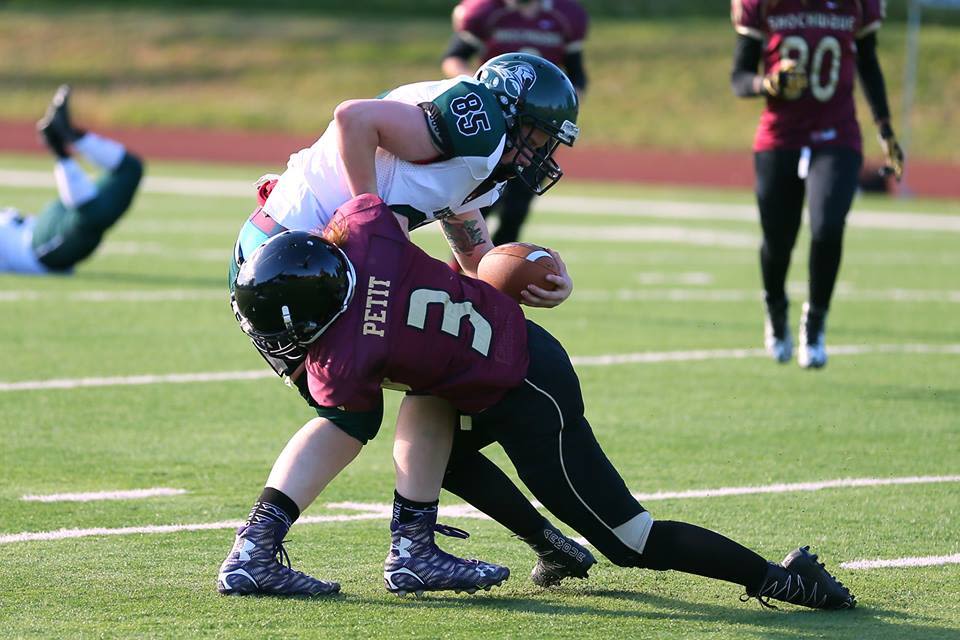
Shockwave safety Hailey Petit tackling an Everett receiver
Image: Courtesy Portland Shockwave
But it’s not all broken bones and chilly winter practices. The women are openly laughing and encouraging on and off the field. They hang out after practice, watch film of opposing teams together, and organize team dinners and events. The camaraderie truly shows, and both the coaches and rookies seem pleased with how far they’ve come in three months.
“We really think it’s in the cards for us to get to the championship,” says Brisson. These women look to reap what they’ve sown when they take the field at 6:00 pm on April 6 at Roosevelt High School. Tickets are available here. Goooooo Shockwave!
